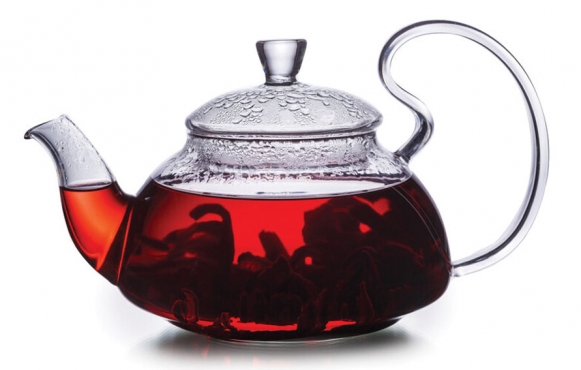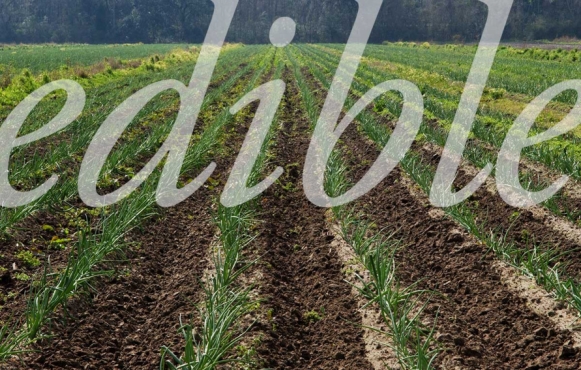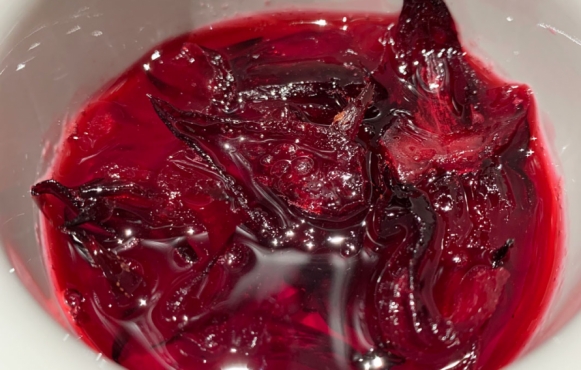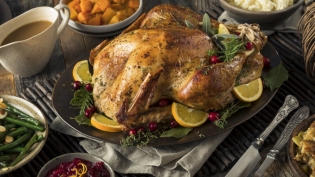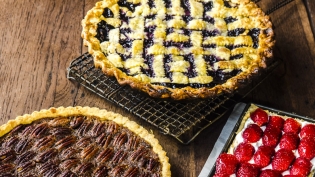Everything’s Coming Up Roselle
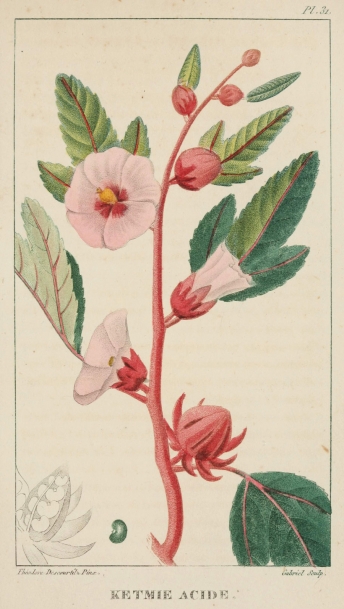
Every late fall, you might come across baskets of the ruby-red calyces for sale in the farmers markets.
“They’re beautiful, healthy and easy to grow,” says Adena Ellenby of LNB Groves, where they grow roselle to add vivid magenta color and bright tartness to their Rainbow Smoothies. Rich in antioxidants and vitamin C, roselle is called “nature’s Kool-Aid,” Ellenby says.
First, some clarifications about nomenclature. Roselle (Hibiscus sabdariffa) is commonly known as Florida cranberry or red sorrel because of the color of its calyces. It’s called sorrel in the Caribbean and flor de Jamaica (hah-MY-cah) in Central America and Mexico, although the word “flor” – flower – is misleading. It’s the calyx, not the flower, that’s eaten. Jamaican sorrel drink is the name of the beverage made from sorrel, ginger, allspice and, often, rum. Cranberry hibiscus (Hibiscus acetosella) is a close relative with edible burgundy leaves, but no tart fruits. Roselle is not related to French sorrel (Rumex scutatus), tangy green leaves often used in soups and sauces.
With its rich red color and tartness, roselle has long been regarded as a southern substitute for the cranberry. Commonly cultivated in Africa, Asia the Caribbean and Central America and Mexico, roselle was planted at the USDA Subtropical Garden in Miami in 1904. Backyard gardeners used the calyces to cook up jams and jellies. Marjorie Kinnan Rawlings’ 1946 Cross Creek Cookery includes a recipe for jelly and the 1956 Trade Winds Cookery features Roselle Catsup. Julia Morton’s Fruits of Warm Climates calls for leaving tender roselles intact and cooking them with sugar to use as a filling for tarts or pies, and chopping them to add to fruit salads.
At LNB Groves, they harvest the calyces and cook them in water until they release their juices and liquid, then freeze for use throughout the year. The fresh tart leaves are edible, too. This year, they’ve planted more of it, Ellenby says. At Thanksgiving, they sell branches as edible bouquets.
How to Grow Roselle
Roselle is frost-sensitive and best planted in May or August. You can start from seeds, grow from cuttings or buy seedlings from local nurseries like Little River Cooperative and Ready to Grow Gardens. Plant in a sunny, well-drained location. The plant will grow to about 5-7 feet and early pruning will increase branches and more flowering shoots. As days get shorter, roselle plants will start to bloom. The flower will wither and fall off, and after a few days, the red calyx around the seed pod will be ready to harvest once it’s plump and tender, generally in November in South Florida. Pop off the calyx to use, removing the seed pod inside.
Communities Near You
What’s happening near you
Visit Lauderdale Food & Wine Festival returns January 13-19, 2025
Las Olas Oceanside ParkFort Lauderdale
BBQ at the Beach
Las Olas Intracoastal Promenade ParkFort Lauderdale


